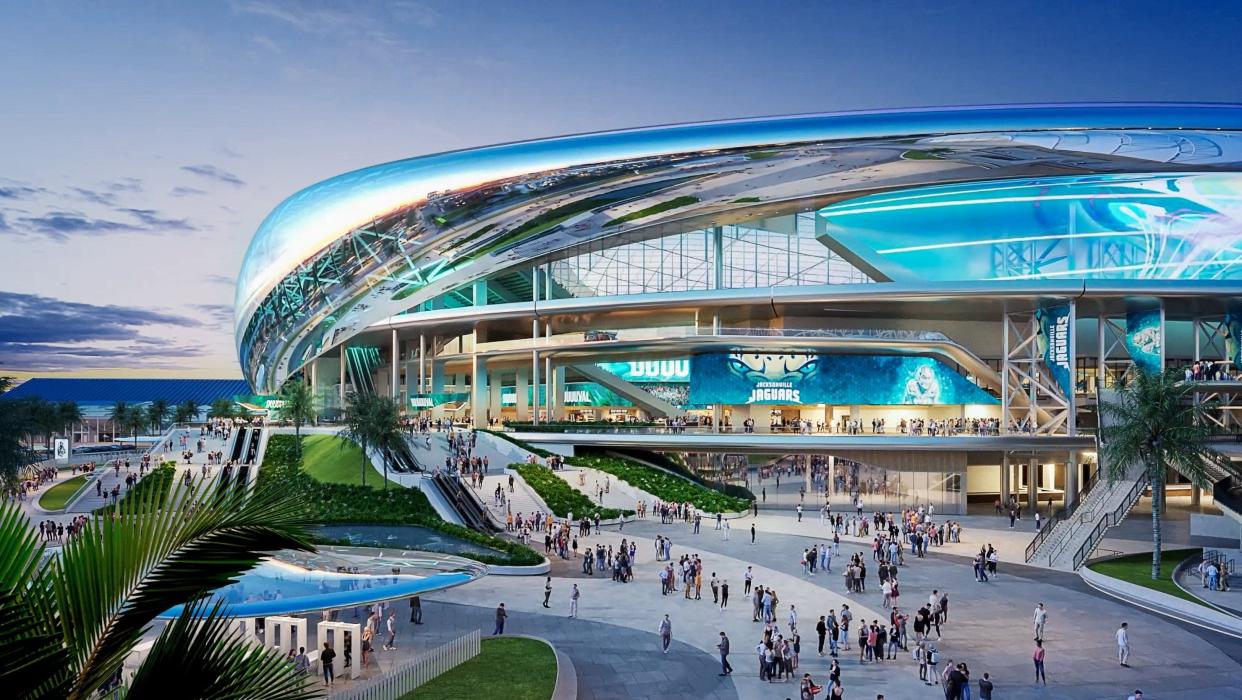The impact on taxpayers of Jacksonville’s priciest public project — stadium renovations

First Coast residents passionately support their hometown football team, the Jacksonville Jaguars. But are they fully aware of the substantial financial implications associated with the Jaguars’ new stadium project?
The proposed “Stadium of the Future” would replace the Jags’ existing EverBank Stadium. This project would be the costliest public project in Jacksonville’s history, and it’s the taxpayers — not the team — who would bear the largest financial burden.
Despite the hype typically associated with this kind of project, having a sports stadium in a city does not bring clear economic benefits to the community. Jacksonville officials should regard it as a questionable investment at best. So why would the city waste taxpayer dollars on something that won’t reap many benefits for those footing the bill?
The proposed new stadium would benefit the football team, not the thousands of taxpayers responsible for funding it.
The Jaguars are seeking nearly $1 billion from the city for construction costs, a hefty price tag that poses a significant financial burden for the community. The funding for this project should come from the football team’s financial backers, rather than digging into the pockets of hardworking individuals — most of whom can’t afford to attend a game and won’t experience any direct financial gains from the “Stadium of the Future.”
Taxpayer dollars could do more for the community if they are invested in essential initiatives that will build the future of Jacksonville. For instance, improving city roadways, addressing high crime rates or assisting residents during periods of economic uncertainty would be far better uses of taxpayer funds.
It’s ironic that Jacksonville is dubbing it the “Stadium of the Future,” considering that it primarily contributes to the future of a single football team while overlooking the broader needs of the city.
Construction is envisioned as beginning in 2026 but could possibly start as early as next year — and the Jaguars don’t anticipate playing in the new stadium until 2028. This prolonged timeline places a considerable burden on the city’s residents to endure such a massive construction project.
The “Stadium of the Future” is designed to accommodate 62,000 seats, or 5,000 less than EverBank Stadium. If fewer fans can watch their beloved Jaguars play, supply and demand suggests that ticket prices would be even higher than the current astronomical levels — again, making it less likely that many of the people paying the bill could afford to enjoy the result.
Without a doubt, the Jaguars have brought much excitement and spirit to the Jacksonville community over the past 31 years. But regardless of whether the team on the field generates the exhilaration of the second half of the 2022 season or the letdown of this past season, it should be the franchise’s monied investors who cover the costs of building a new stadium.
Jacksonville government officials should be advocating for the well-being of the people they represent — not shackling them with the financial burdens this project could impose.

Kelly Pickens is the grassroots engagement director for Americans for Prosperity Florida. She lives in Jacksonville.
This guest column is the opinion of the author and does not necessarily represent the views of the Times-Union. We welcome a diversity of opinions.
This article originally appeared on Florida Times-Union: Taxpayers in Jacksonville won't reap benefits of Jaguars' new stadium

